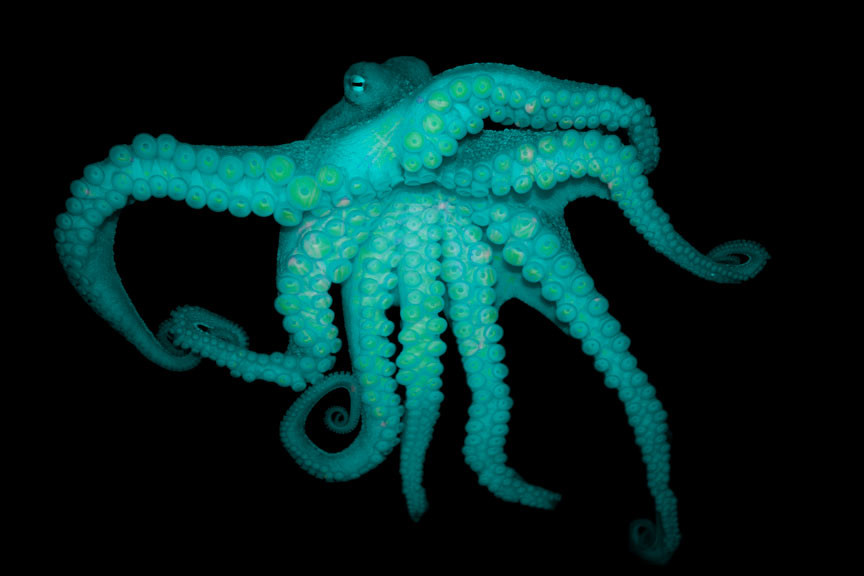What happens when you give an octopus MDMA?
A team of researchers bathed octopuses in MDMA. Here’s what they learned.

Psymposia is a 501(c)(3) nonprofit research and media organization that offers critical perspectives on drugs, politics, and culture. We rely on contributions from our readers and listeners. Your support is vital to sustaining Psymposia.
Support Psymposia’s independent journalism on Patreon and help us drive the Mystery Machine! We’re a bunch of meddling kids who are unmasking the latest shenanigans on the psychedelics beat.
Ateam of researchers bathed octopuses in MDMA and found that it makes the typically asocial animals more social.
Dr. Gul Dolen of Johns Hopkins University and Eric Edsinger of the University of Chicago conducted this experiment under the hypothesis that some neurotransmitter systems are shared across vertebrate and invertebrate species — “in many cases enabling overlapping functions.”
In this case, the authors were studying a serotonin transporter binding site of MDMA that they believed octopuses share evolutionarily with humans — even though our lineages are separated by over 500 million years. Basically, they thought that MDMA would have a similar effect on octopus behavior to the effect it has on human behavior.
First, the researchers presented sober octopuses with 3 chambers: one empty chamber, one social chamber, and one chamber with an object in it. Based on records of their behavior for 30 minutes, sober octopuses would spend more time in the object chamber and the social chamber (but only when the social chamber had a female in it.)
Then, the octopuses were bathed in MDMA for ten minutes and given the same test.
What they found was that, yes, MDMA significantly increases pro-social behaviors that are usually suppressed in octopuses. On MDMA, octopuses are more apt to want to hang out with other octopuses than when they are sober.
The study claims that this indicates the “role of serotonergic neurotransmission in regulating social behaviors is evolutionarily conserved” in octopuses — at least of the O. bimaculoides variety.
Based on MDMA’s ability to induce pro-social behaviors in octopuses, the authors write that “it is tempting to speculate that in octopuses sociality is the default state, which is suppressed outside ethologically relevant periods, such as mating.”
Hey! Before you go… Psymposia is a 501(c)(3) non-profit media organization that offers critical perspectives on drugs, politics, and culture. We strive to ask challenging questions, and we’re committed to independent reporting, critical analysis, and holding those who wield power accountable.
Our perspectives are informed by critical analysis of the systemic crises of capitalism that have directly contributed to the unmitigated growth of addiction, depression, suicide, and the unraveling of our social relations. The same economic elite and powerful corporate interests who have profited from causing these problems are now proposing “solutions”—solutions which both line their pockets and mask the necessity of structural change.
In order for us to keep unpacking these issues and informing our audience, we need your continuing support. You can sustain Psymposia by becoming a supporter for as little as $2 a month.
Russell Hausfeld
Russell Hausfeld is an investigative journalist and illustrator living in Cincinnati, Ohio. He has a Bachelor’s degree in Journalism and Religious Studies from the University of Cincinnati. His work with Psymposia has been cited in Vice, The Nation, Frontiers in Psychology, New York Magazine’s “Cover Story: Power Trip” podcast, the Daily Beast, the Outlaw Report, Harm Reduction Journal, and more.





